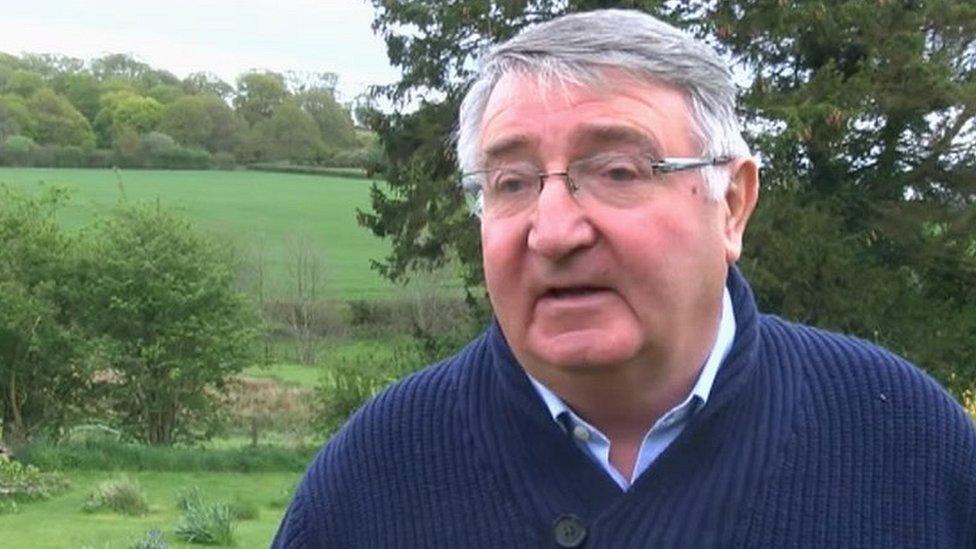Article 50: Where do Welsh parties stand on Brexit?
- Published

It is many months since the result of the EU referendum was declared, but debates about Brexit have become a recurrent feature of political life in the National Assembly for Wales.
Those debates will intensify as negotiations finally begin with the formal triggering of the UK's withdrawal from the European Union, known as Article 50, by Prime Minister Theresa May.
As the process finally begins, we look at where the parties in the assembly stand.

Labour
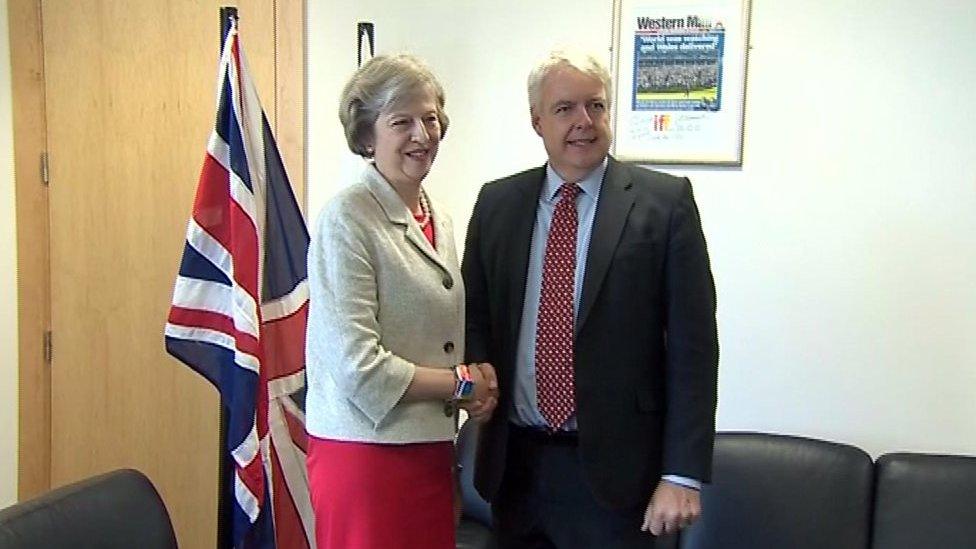
Theresa May first met Carwyn Jones in her new role as prime minister last July
There has barely been a month in which Labour First Minister Carwyn Jones has not attended a Brexit summit - disguising the little leverage Mr Jones theoretically has - given Wales voted leave and he backed remain.
Regardless, after Article 50 is triggered, the Welsh Government is likely to warn the UK government about implementing anything that would mean Wales losing tariff-free access to the single market.
It will want current funding levels on agriculture and EU aid to be sustained.
The Welsh Government white paper in January intimated ministers believed freedom of movement - one of the pillars of membership of single market - could be kept but with the restriction that anyone who comes to the UK has a job.
The Welsh Government will also argue for structures to replace EU state aid rules - which prevent public bodies giving private firms an unfair advantage - in an effort to prevent what Mr Jones has called a "trade war" between the devolved nations.
But perhaps the biggest fight with the government will be over the distribution of post-Brexit powers among the devolved legislatures as they return from Brussels.

Plaid Cymru
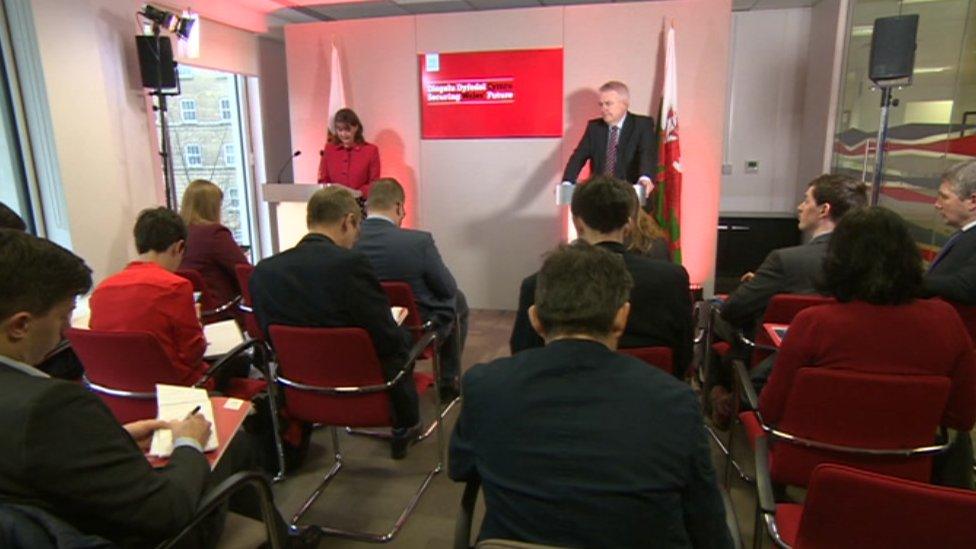
Leanne Wood published a joint white paper with Carwyn Jones on Brexit
Plaid Cymru also found itself on the losing side at the referendum - it was never going to be a cheerleader for leaving the EU.
In an alternative article 50 letter, the party has called for membership of the European Economic Area and/or the European Free Trade Area - of which some countries outside of the EU that engage with the single market are members.
Plaid has, alongside Labour, called for guaranteed citizenship rights for EU nationals in Wales and Welsh nationals in the EU, and will want to see continued participation in European funding programmes.
The party will also be focused on what is and is not devolved after Brexit and will resist anything it sees as a claw-back of powers to London.
However, Plaid signed up to the Welsh Brexit white paper with Labour and some of the positions in it - such as its position on freedom of movement - also appear more nuanced than Plaid's pro-EU stance may suggest.
Plaid had initially demanded the UK remains a member of the single market, but the paper talks about participation in the single market - which could have a variety of implications.

UKIP
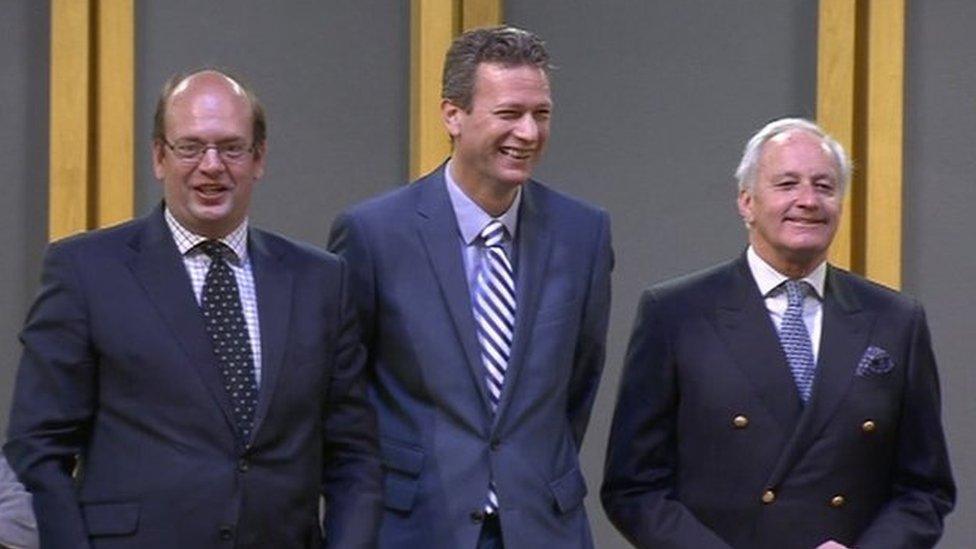
Mark Reckless, Nathan Gill and Neil Hamilton were sworn in as UKIP AMs - but Nathan Gill has since left the party's group
UKIP is a significant force in Welsh politics by virtue of its six AMs - but the fact it had seven as recently as last summer is one example of the many internal problems the party faces.
Despite the internal rows, it can claim to be closer to Wales' verdict in the EU referendum than Labour and Plaid.
UKIP has promised to hold Theresa May's feet to the fire over the negotiations - anything that is seen as watering down Brexit is likely to be criticised by the party.
It has not produced a document outlining what Wales should get from leaving the EU in the same way Labour and Plaid has but UKIP is likely to press for a hard Brexit throughout the negotiation process.
It will likely criticise the UK government over anything it perceives as giving too much away to Brussels. It will want to see full immigration control and will be more relaxed about losing single-market access.
Party AMs will also not want to see contributions being made to the EU budget, the UK's seat retaken on the World Trade Organisation and Britain wholly removing itself from the jurisdiction of the European Court of Justice.

Welsh Conservatives
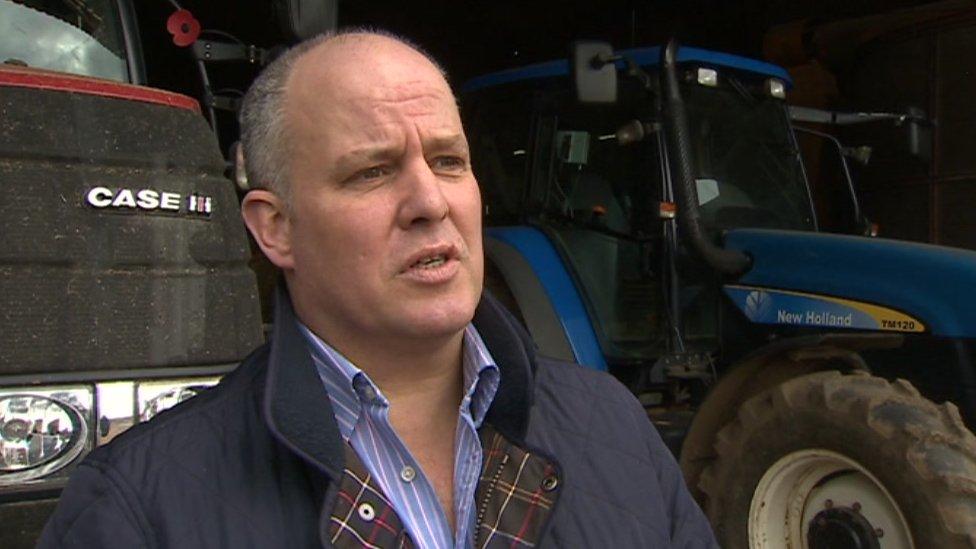
Brexit was a boost for Andrew RT Davies' leadership of the Welsh Conservatives in the wake of an assembly campaign which saw his party lose seats.
With his party governing in Westminster, the Tory group will be loyal to the UK government in the Brexit process, unless there is an unexpected and highly-unlikely schism.
Mr Davies has told AMs in the Senedd he would would fight to secure "Wales's share of resources".
He, like Mr Jones, wants to see work on transitional arrangements within the UK post-Brexit to prevent disparities - and it is on issues like that where he thinks there could be more common ground on Brexit.
The Tory leader has previously stated, though, that it may not be devolved institutions which manage what replaces structural funds.
Mr Davies has said the Welsh Government is out of touch with voters and has tried to claim the moral high-ground by offering Carwyn Jones "the hand of friendship".
But his bids for cross-party working on Brexit in Cardiff have been snubbed.

Welsh Liberal Democrats
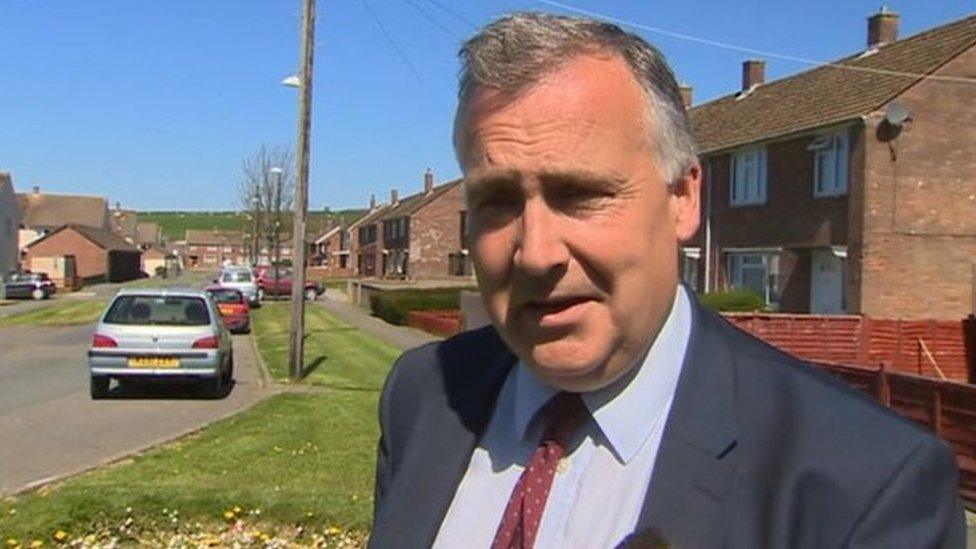
The Welsh Liberal Democrats, led by MP Mark Williams, is hoping to capitalise on its Remain stance
Other than Plaid Cymru, the other party in Wales that is stridently pro-EU is the Welsh Liberal Democrats.
Party leader Mark Williams - and its only MP - voted against allowing the UK government the power to start Brexit in the House of Commons.
There is only one Lib Dem in the Senedd, former leader Kirsty Williams, who is a member of the Welsh Government - and the only member of the government who voted against Article 50 in the assembly.
The Lib Dems want rights protected for EU citizens and UK citizens, freedom of movement, membership of the single market, sustained levels of investment in UK universities and support for Welsh farmers to be protected.
- Published23 January 2017
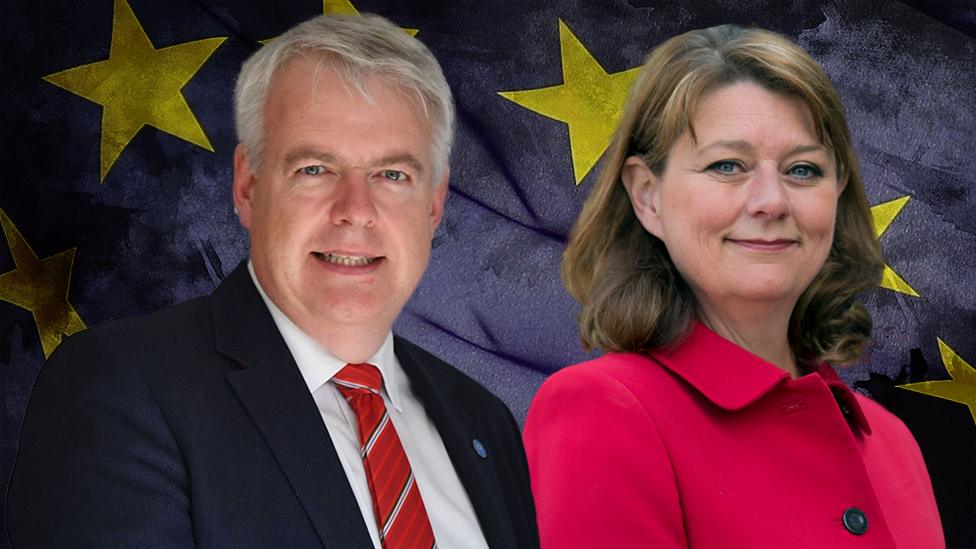
- Published29 March 2017
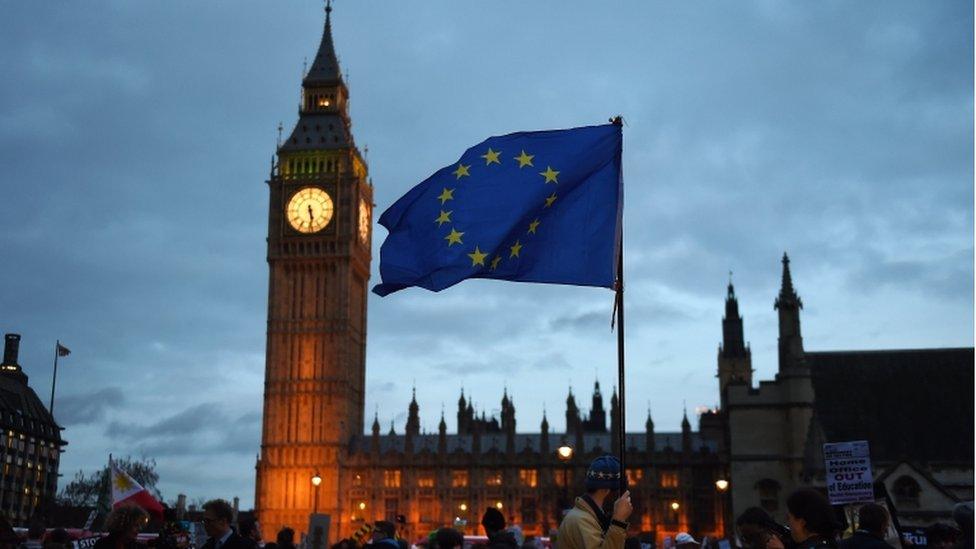
- Published22 February 2017
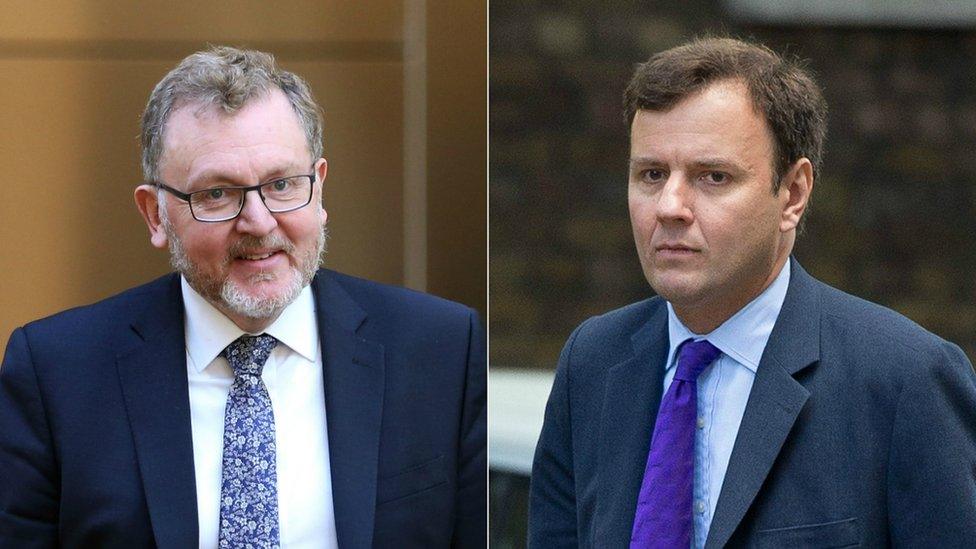
- Published28 March 2017
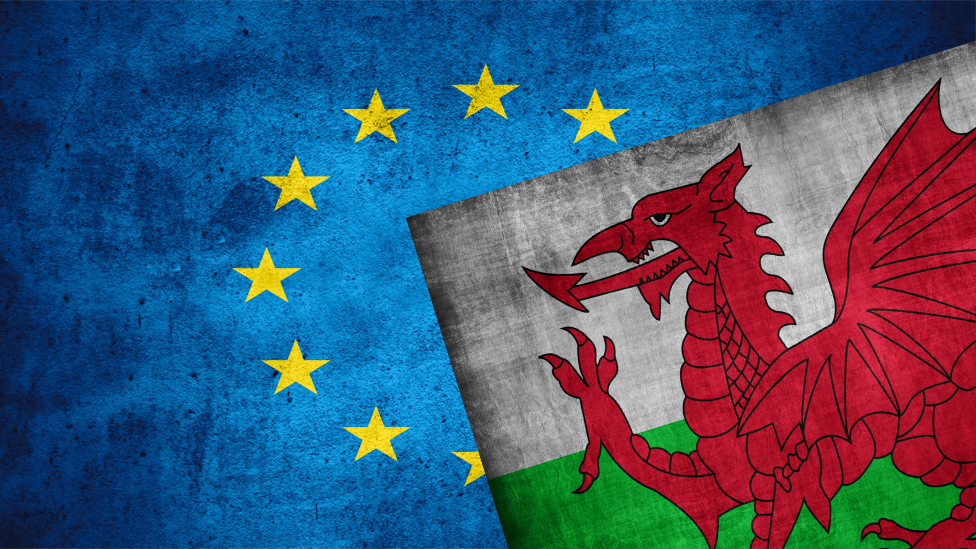
- Published23 December 2016
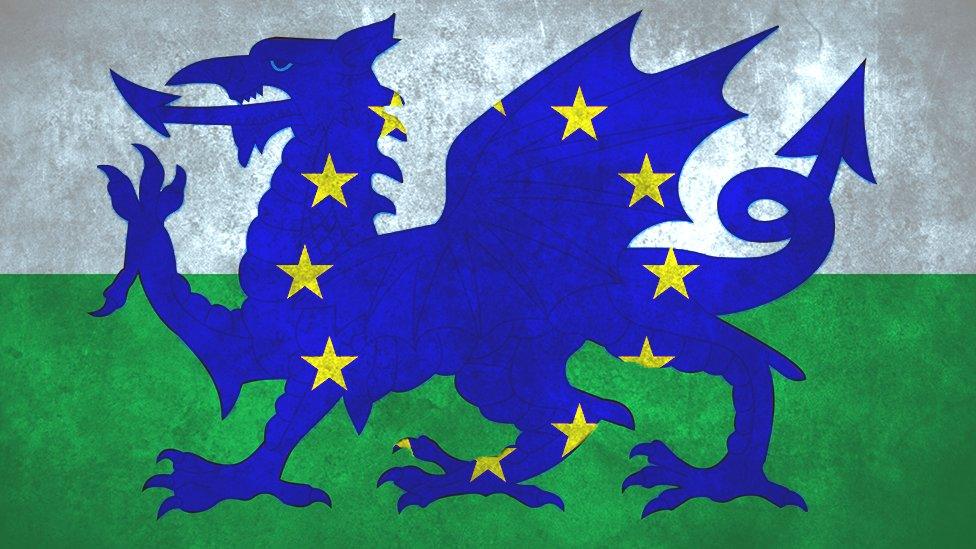
- Published12 March 2017
